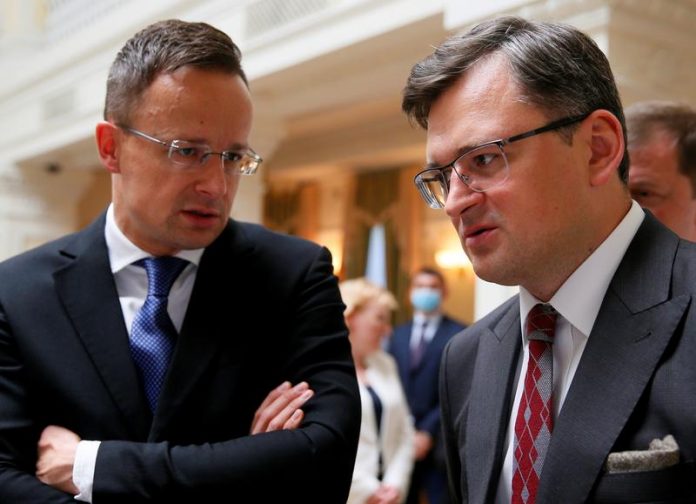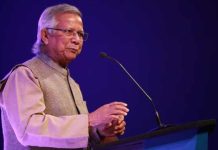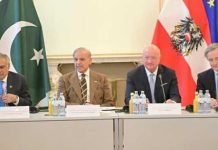KYIV: The foreign ministers of Hungary and Ukraine were expected to meet in Kyiv on Wednesday for talks on repairing badly strained relations but Budapest said its diplomatic missions in the ex-Soviet republic had received threats of “bloodletting” violence.
The two countries are at loggerheads over the right of some 150,000 ethnic Hungarians living in Transcarpathia in western Ukraine to use their native tongue, especially in education. The region borders Hungary.
Prime Minister Viktor Orban’s nationalist government in Budapest has responded by blocking Kyiv’s efforts to build closer ties with NATO and the European Union, of which Hungary is a member.
Hungarian Foreign Minister Peter Szijjarto said in a video posted on Facebook that he would meet his Ukrainian counterpart Dmytro Kuleba to “discuss ways to stop these negative trendsor at least sketch a way out”.
“Unfortunately the Hungary-Ukraine relationship has gone in a very bad direction after a temporary thaw,” he said.
Overnight, Szijjarto added, Hungarian diplomatic missions in Ukraine received threats “from people claiming to be Ukrainian patriots promising all sorts of bloodletting in the event of our talks taking place”.
He gave no further details. Kuleba said the Ukrainian police were investigating the threats, which he said appeared to originate from outside Ukraine. Kuleba also struck a firm tone towards Hungary.
“Nobody should think it is possible to come to Kyiv and dictate any conditions,” he said on Facebook, adding that he expected Hungary to make concrete proposals to end their row.
Ukraine angered Hungary in 2017 with a law restricting the use of minority languages in schools. Ukraine has large Russian, Belarusian, Bulgarian, Romanian and Polish minorities as well as Hungarian. The enmity has wider dimensions. Hungary’s Orban has forged good ties with President Vladimir Putin’s Russia and has called for the lifting of EU sanctions imposed on Moscow over its 2014 annexation of Crimea from Ukraine and its support for pro-Russian separatists battling Kyiv’s forces in eastern Ukraine.

















